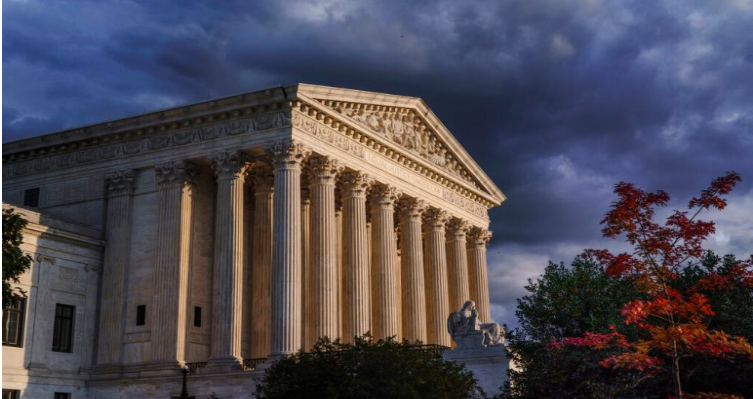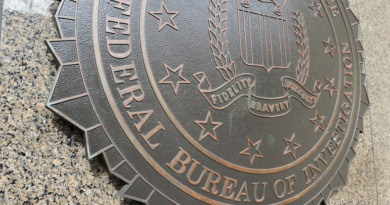US Supreme Court hears challenges to Texas abortion ban

Published On 1 Nov 2021
The United States Supreme Court has heard challenges to a Texas law that has effectively banned abortions after six weeks of pregnancy.
The Texas ban has prompted widespread protests, and Al Jazeera’s Patty Culhane, reporting from Washington, DC on Monday, said about 100 protesters on both sides of the abortion issue had gathered outside the Supreme Court before the day’s hearings.
The US Justice Department and abortion providers have objected to the law, which imposes a near-total ban on the procedure in the country’s second-largest state, home to 29 million people.
Coming into effect in early September, the legislation allows private citizens to enforce the ban by seeking financial judgments against abortion providers – a novel design that shielded it from lower court challenges.
The Supreme Court justices heard three hours of oral arguments from abortion providers and Biden administration lawyers on Monday.
Abortion providers have asked the Supreme Court to block state clerks in Texas from accepting lawsuits under the law, formally known as SB8, while the Justice Department has argued that the restrictions are unconstitutional.

Women join a pro-choice rally outside the Supreme Court on Monday [Jacquelyn Martin/AP Photo]
The Reuters and AFP news agencies reported that the justices appeared to lean towards allowing the two legal challenges to proceed.
“Right now it sounds like there are 6 Justices skeptical of [the] Texas vigilante provision,” Neil Katyal, who served as deputy solicitor general under former President Barack Obama, said on Twitter.
Al Jazeera’s Culhane said one of the things the conservative justices seemed most concerned about was whether other US states could replicate the Texas law on other issues. “For example, they said what if a liberal state wants to basically allow people to sue anyone who has a gun?” she reported.
“Everyone will be paying close attention to how the decisions are worded,” said Culhane, who added that those rulings could be several months away.
The hearings came as the Supreme Court’s 6-3 conservative majority considers overturning the court’s historic 1973 Roe v Wade decision that legalized abortion in the US.
The court will hear arguments on December 1 on the legality of a 2018 Mississippi law that prohibits the procedure after 15 weeks of pregnancy.
At least 12 other US states have enacted abortion bans early in pregnancy, but courts have blocked all from going into effect.
Legal battles
The high court jumped into the Texas cases less than two weeks ago, moving at extraordinary speed after originally rejecting a plea to intervene and block the law from taking effect on September 1.
But since that time, Texas abortion providers and US President Joe Biden’s administration have challenged the ban.
In October, the law was suspended for 48 hours by a US federal judge who ruled that it is unconstitutional, but that decision was overruled by a US appeals court.
The conservative US Fifth Circuit Court of Appeals in New Orleans ruled that federal courts lacked jurisdiction to intervene, allowing the Texas law to go back into effect.
The Texas ban, signed into law by Governor Greg Abbott in May, prohibits abortion after the cardiac activity is detected in a fetus, usually about six weeks and before some women know they are pregnant. The law makes exceptions for medical emergencies but not for rape or incest. Video Duration 04 minutes 01 seconds04:01
Tens of thousands of women march for abortion rights in the US
The law also empowers private citizens to sue anyone who performs or aids and abets an abortion. If they are successful, they are entitled to at least $10,000.
Women who obtain abortions cannot be sued under the law, but the structure of the enforcement mechanism threatens abortion providers with huge financial penalties.
Many clinics throughout the state have stopped performing abortions since the law came into effect. The number of abortions in the state fell to 2,100 in September from 4,300 a year earlier, according to a University of Texas study.
Women’s rights advocates have said the legislation will disproportionately harm Black and other women of color, as well as those from economically disadvantaged communities who cannot afford to travel outside of Texas to get abortions.
Meanwhile, tens of thousands of women marched on the US Capitol on October 2 to demand reproductive rights be protected.
“Threats to our bodily autonomy and reproductive healthcare are still rampant, and politicians are still using the courts to impose an ultra-conservative and misogynist agenda to dominate and control women’s lives,” the National Organization for Women said in a statement last month.
SOURCE: AL JAZEERA AND NEWS AGENCIES

